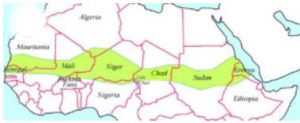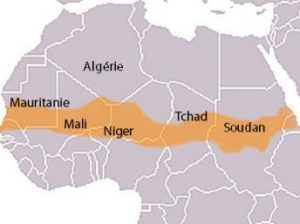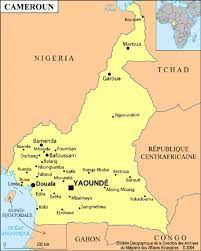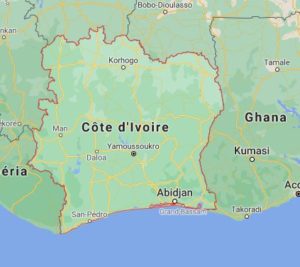Sahel Sahara: crises in the crisis.
 Over the last ten years, the Sahel crisis has steadily taken root in and spread beyond the region. Having become structural, it is far from having reached its peak, especially in Mali, its epicenter. Its human, material and political damage are aggravated by the continuous disintegration of societies, economies and administrations while social networks, « conspirators » or not, make it a boon for young people dreaming of great adventures.
Over the last ten years, the Sahel crisis has steadily taken root in and spread beyond the region. Having become structural, it is far from having reached its peak, especially in Mali, its epicenter. Its human, material and political damage are aggravated by the continuous disintegration of societies, economies and administrations while social networks, « conspirators » or not, make it a boon for young people dreaming of great adventures.
Through its fallouts, obviously now more diplomatic and unsurprisingly more publicized the crisis is evident far from the Sahel (in the Maghreb and in Moscow), thus fueling other crises and inter states power struggles. Similar to the now uncontrollable Libya situation, partly linked to its origin, but also to those always murderous Lake Chad crises.

 A surprise or a signal of our times? Beyond the enormous dissimilarities – geographical, historical and military – separating the two regions, American withdrawal from Afghanistan in the face of the Taliban success, is as closely followed in the Sahel as in countries more directly concerned. The various armed groups, linked or not to AQIM, or Al Qaeda in the Maghreb, cannot contain their exaltations there. Their morale is at the zenith and the certainty that, that of their enemies is at the bottom, invigorates them even more.
A surprise or a signal of our times? Beyond the enormous dissimilarities – geographical, historical and military – separating the two regions, American withdrawal from Afghanistan in the face of the Taliban success, is as closely followed in the Sahel as in countries more directly concerned. The various armed groups, linked or not to AQIM, or Al Qaeda in the Maghreb, cannot contain their exaltations there. Their morale is at the zenith and the certainty that, that of their enemies is at the bottom, invigorates them even more. Burkina Faso, Mali and Niger, the most exposed countries of the G5 Sahel to terrorism, have been facing repeated attacks since this year beginning. It is in this worrying context that the French president announced on 10 June, the “end of Operation Barkhane”, and a strategic partner in the fight against terrorism in the Sahel. The silence surrounding that statement indicates that, on both sides, time has come to seek new avenues to overcome the jihadist scourge.
Burkina Faso, Mali and Niger, the most exposed countries of the G5 Sahel to terrorism, have been facing repeated attacks since this year beginning. It is in this worrying context that the French president announced on 10 June, the “end of Operation Barkhane”, and a strategic partner in the fight against terrorism in the Sahel. The silence surrounding that statement indicates that, on both sides, time has come to seek new avenues to overcome the jihadist scourge.
 The gradual evolution of security issues in Côte d’Ivoire can be seen around a bundle of representations and myths that Islamist doctrinaire have theorized elsewhere. However, the evaluation of the demonstrations of force of small armed groups in the north shows the capacity of these groups to combine concept, slogan and realities on the ground. In this case, for two years, the Ivorian security doctrine adversity which lays the foundations for its social significance. The repeated assaults on army positions indicate an almost unstoppable will to engage; the insurrectionary zest, enthusiasm and daring are lubricated by a faith in the hereafter, part of the quest for personal salvation after death. This dimension, largely underestimated when designing security policies on the continent, also explains the speed of jihadist dissemination within communities whose ethnic diversity, differences in environment and lifestyles defied the idea. even a standardization of behavior and of the relationship to the Other.
The gradual evolution of security issues in Côte d’Ivoire can be seen around a bundle of representations and myths that Islamist doctrinaire have theorized elsewhere. However, the evaluation of the demonstrations of force of small armed groups in the north shows the capacity of these groups to combine concept, slogan and realities on the ground. In this case, for two years, the Ivorian security doctrine adversity which lays the foundations for its social significance. The repeated assaults on army positions indicate an almost unstoppable will to engage; the insurrectionary zest, enthusiasm and daring are lubricated by a faith in the hereafter, part of the quest for personal salvation after death. This dimension, largely underestimated when designing security policies on the continent, also explains the speed of jihadist dissemination within communities whose ethnic diversity, differences in environment and lifestyles defied the idea. even a standardization of behavior and of the relationship to the Other.